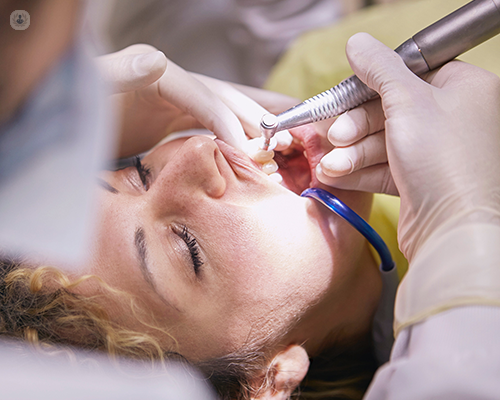Cosmetic dental treatments vs Health-oriented dental treatments
Autore:Beyond aesthetics, cosmetic dentistry may also help to promote good oral health and prevent further damage to the teeth.
Here, Dr Sahil Patel, renowned cosmetic dentist based in London, offers expert insights into cosmetic dental treatments and health-oriented dental treatments for a confident and healthy smile.

What is the difference between cosmetic dental procedures and health-focused dental treatments?
Cosmetic treatments typically occur to improve appearances in the absence of dental disease, whereas health-focused treatments are aimed at removing pathology. Pathology is a technical term relating to the presence of disease, which may be produced by bacteria (e.g gum disease, dental decay), or, by genetic or lifestyle factors (e.g oral cancer, amelogenesis imperfecta).
Cosmetic treatments primarily improve the appearance of teeth but can also change the health parameters – specifically to reduce perceived risk of developing disease and improve quality of life.
Are cosmetic dental treatments safe for my overall oral health?
This depends on who is performing the treatment and to what standard. The clinical standards in cosmetic dentistry are upheld by certain dental academies, specifically The British Academy of Cosmetic Dentistry.
How can cosmetic dentistry improve both the appearance and health of my teeth?
- Gum treatment
Recovery from gum disease can often cause gum recession, whereby the gum drops lower down on the tooth surface, exposing the tooth root surface. Root surfaces are at higher risk of tooth decay. Cosmetic treatments can improve this by covering the exposure with either composite resin bonding or ceramic bonding. The spaces that open between the teeth (black triangles) can also be closed with the aforementioned methods.
- Worn/broken/short/small teeth
Cosmetic treatments to restore the shapes and appearance of teeth improves their function simultaneously. Teeth are designed to work in such a way that their natural morphology (shape) is critical to their efficiency when chewing.
Cosmetic treatments can also restore your bite if you suffer from teeth grinding or bruxism.
Which dental procedures are considered cosmetic, and which ones are essential for maintaining oral health?
Treatments for tooth decay, gum disease, tooth replacement, and extreme tooth wear are essential for oral health.
Cosmetic treatments include teeth whitening, composite bonding, ceramic veneers, tooth contouring, and gum lifts. It is important to note that these treatments are considered cosmetic in the classical meaning of the word ‘cosmetic.’ However, in the 21st century, mental health and quality of life is as important as physical health. Mental health pathology can’t directly be treated with cosmetic procedures alone, but these can assist in improving confidence, which in turn may alleviate symptoms relating to mental health and poor quality of life.
What are the long-term benefits of investing in cosmetic dental treatments for my oral health?
There are numerous benefits to cosmetic treatments.
Specifically to oral health, the extremely smooth and polished nature of ceramics can reduce the risk of gum disease developing or relapsing. There is some evidence that tooth whitening can reduce the risk of decay and gum disease.
There is also a widely-held opinion that if teeth appear better within the smile, the individual is more likely to look after those teeth, with their home care routine as well as how they use their teeth daily.
If you would like to discuss your dental treatment options with an expert, request an appointment with Dr Sahil Patel via his Top Doctors profile today.


